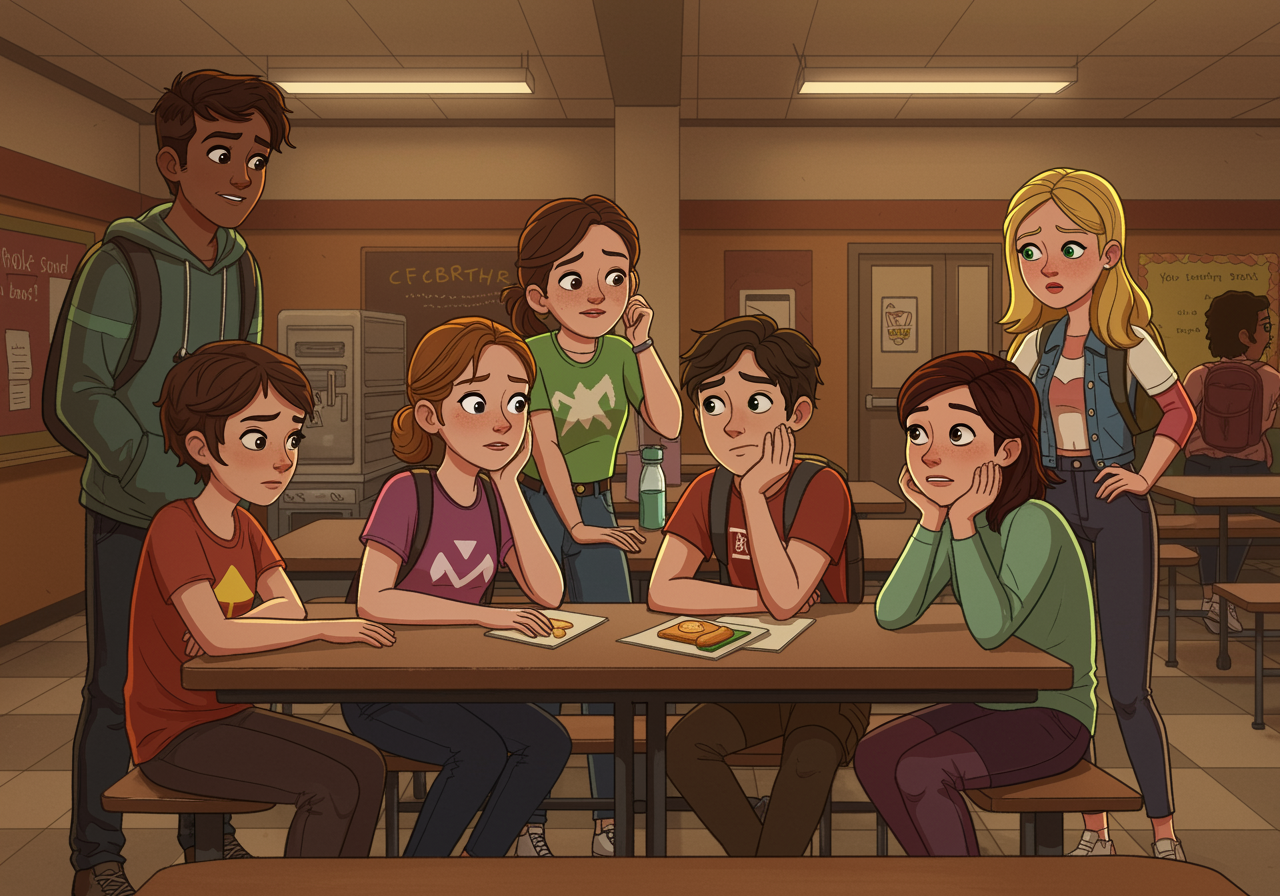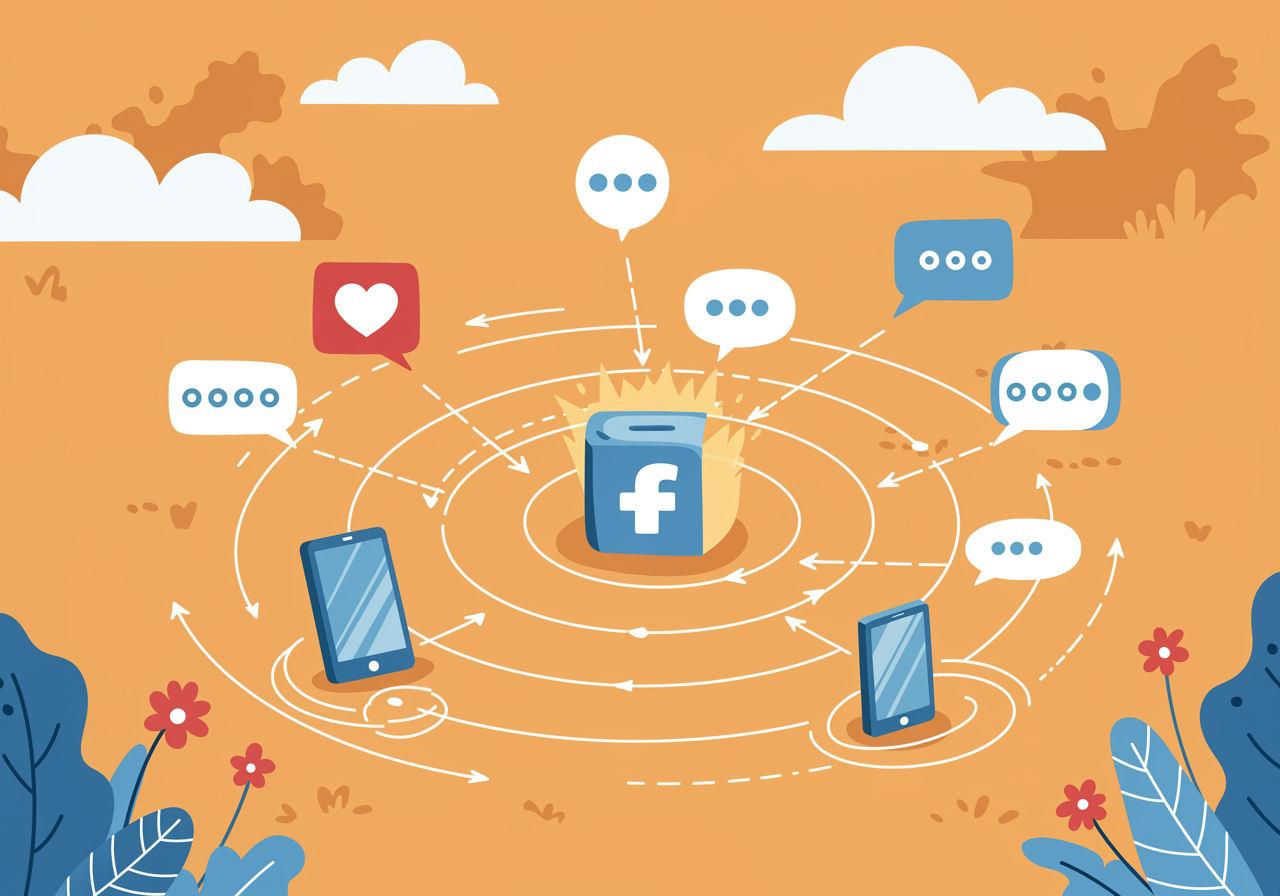When Fame Meets Fiction: How Celebrity Rumors Spread Like Wildfire
Exploring the wild world of celebrity gossip and why it matters more than we think
Dive into the fascinating but sometimes harmful world of celebrity rumors and discover how to be a smarter consumer of entertainment news.
Overview
Think about how fast a funny meme spreads at school – celebrity rumors work the same way, but with millions of people instead of just your classmates! When famous people become the center of wild stories, it affects real human beings with real feelings. This topic helps us understand how information travels in our connected world and why thinking before we share is more important than ever. Plus, it's a great way to become smarter about what we see online and on TV.

Understand in 30 Seconds
Get up to speed quickly
- Rumors Spread Like Lightning: Social media makes rumors travel faster than ever before – one post can reach millions in minutes. What starts as a small misunderstanding can become 'breaking news' before anyone checks if it's true.
- People Love Drama: Our brains are wired to pay attention to exciting or shocking stories. Celebrity rumors often get more clicks and shares than boring, true news.
- Real People, Real Feelings: Behind every famous face is a person with emotions, family, and friends. False rumors can hurt their relationships, mental health, and career opportunities.
- Not Everything Online Is True: Just because something looks official or gets shared a lot doesn't make it real. Learning to spot reliable sources is like having a superpower in today's world.
Real Life Scenario
Situations you can relate to
Imagine your friend Alex posts a photo of you at lunch, but the angle makes it look like you're doing something you're not. Within an hour, half the school thinks you were cheating on a test or dating someone you barely know. How would that feel? Now multiply that by millions of strangers online, and you start to understand what celebrities face. The difference is, when rumors spread about you at school, it might blow over in a week. When rumors spread about famous people, they can follow them forever on the internet. Have you ever had someone spread something untrue about you? How did it make you feel, and what did you wish people would have done differently?

Role Play
Spark a conversation with “what if” scenarios
What if you were a famous singer and someone posted a fake story saying you hate your fans?
- Role play: Take turns being the celebrity and a fan. The 'celebrity' explains how the rumor makes them feel, while the 'fan' practices asking good questions like 'Is this from a reliable source?' before believing it.
What if you saw a wild rumor about your favorite actor on social media?
- Role play: Practice being a 'rumor detective' – look for clues like: Who posted it? Are there real quotes? Do other trusted sources report the same thing? Create a checklist together.
What if your friend wanted to share a celebrity rumor with you?
- Role play: Role-play having a kind conversation about why you'd rather not spread unverified stories. Practice saying things like 'That sounds wild, but should we check if it's true first?'
FAQs
Frequently asked questions people want to know
Why do people make up stories about celebrities?
Some do it for attention or money (fake stories get clicks!), others might genuinely believe wrong information, and sometimes it's just a misunderstanding that snowballs out of control.
How can we tell if a celebrity story is true?
Check multiple reliable news sources, look for official statements from the celebrity or their team, and be suspicious of stories that seem too crazy or perfect to be true.
Do celebrities ever start rumors about themselves?
Sometimes! It's called publicity, and while it might seem weird, some celebrities or their teams share strategic information to stay in the news – but that's different from harmful lies.
Examples in the Wild
See how this works day to day
- In 2023, false reports about various celebrities' deaths regularly go viral on social media, causing distress to fans and families before being debunked. (Associated Press Fact Check)
- Taylor Swift has frequently addressed how media speculation about her personal life affects her mental health and relationships. (Rolling Stone Magazine)
- Studies show that celebrity rumors spread 6 times faster on social media than verified news stories. (MIT Technology Review)
- Many celebrities now use their own social media accounts to directly address false rumors instead of letting them spread unchecked. (Entertainment Weekly)
In Summary
What you should know before you start
- Celebrity rumors spread incredibly fast because people love drama and social media makes sharing instant
- Famous people are real humans whose lives can be seriously impacted by false stories
- Not everything we see online is true, even if it looks official or gets shared a lot
- We can be smarter consumers by checking sources and thinking before we share
Pro-tip for Parents
You got this!
If your teen is upset about rumors involving their favorite celebrity, use it as a teaching moment rather than dismissing their feelings. Ask questions like 'How do you think this person feels?' and 'What would you want people to do if this were about you?' This helps build empathy while developing critical thinking skills. Remember, their concern for a celebrity they admire shows they have a caring heart – help them channel that into being a thoughtful digital citizen.

Keep an Eye Out For
Find these examples in everyday life
- When celebrity stories trend on social media – use them as opportunities to practice source-checking together
- Award shows and red carpet events often generate both real news and wild speculation
- Celebrity social media posts that address rumors directly – great examples of people standing up for themselves
Explore Beyond
Look up these related research topics
- How social media algorithms decide what content we see
- The psychology of why humans love gossip and drama
- Media literacy skills for navigating news in the digital age